During World War II, Army Chief of Staff George Marshall refused all United States awards and medals, and most from other countries. He made an agreement with British Field Marshal John Dill that awards would not be exchanged between the two countries during the war. Marshall biographer Forrest C. Pogue wrote that Marshall thought “it was not proper for him to accept such honors while men were dying, or while he was still Chief of Staff of the Army.”
There was an exception to this rule on June 5, 1944 – the night before D-Day – but it didn’t happen without a lot of back-and-forth on the wisdom of accepting this particular award.
In March 1944, the ambassador from the Soviet Union to the United States, Andrei Gromyko, called on Undersecretary of State Edward Stettinius, and told him that the Soviet Union wished to bestow the highest honor of the Order of Suvorov First Class on Army Chief of Staff George Marshall. U.S. Ambassador to the Soviet Union, Averell Harriman, had already explained the policy and tried to dissuade Soviet officials from offering the award, without success. Secretary of War Henry Stimson sought guidance from President Roosevelt, as Stimson was aware that refusal to accept the award could cause diplomatic difficulties.
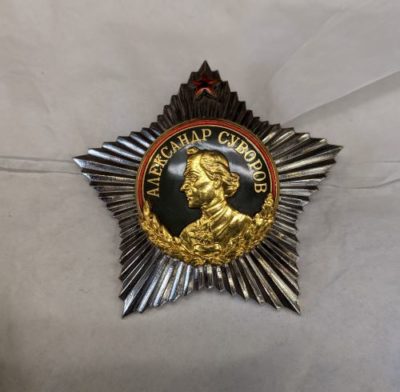
Order of Suvorov medal
“I do not want to offend the Russian Government. If Dill thinks that General Marshall should go ahead and receive it, I personally think he should do it,” the President wrote to Stimson.
Dill said that it would be “impossible for Marshall to refuse this Soviet decoration and his acceptance would not be taken ill by us nor would it affect our working agreement as regards not swapping decorations.” The British Chiefs of Staff agreed that refusing would “almost certainly give offence” to Marshal Stalin.
On March 24, the Soviet government announced that Marshall would be awarded the Order of Suvorov “for his outstanding military ability and services to the leadership of the American armed forces in the struggle against the common enemy of the Soviet Union and the United States.”
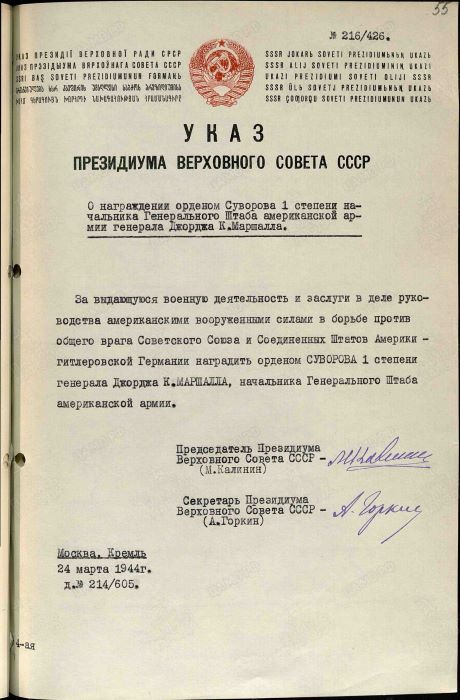
Russian citation for Marshall’s Suvorov award signed by Soviet President Mikhail Kalinin.
On June 5, while troops were getting set to begin the invasion of Europe, Marshall traveled to the Soviet Embassy on 16th Street to meet with Ambassador Gromyko and receive the award.
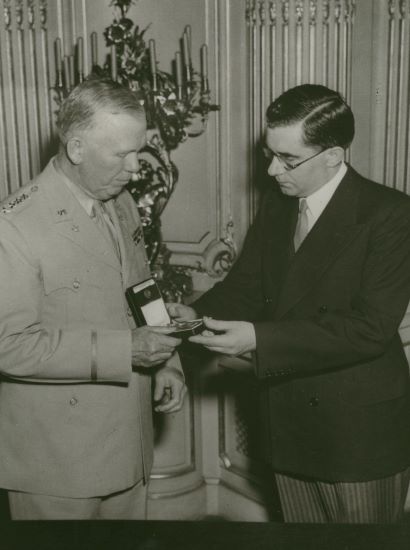
Marshall with Soviet Ambassador to the United States Andrei Gromyko
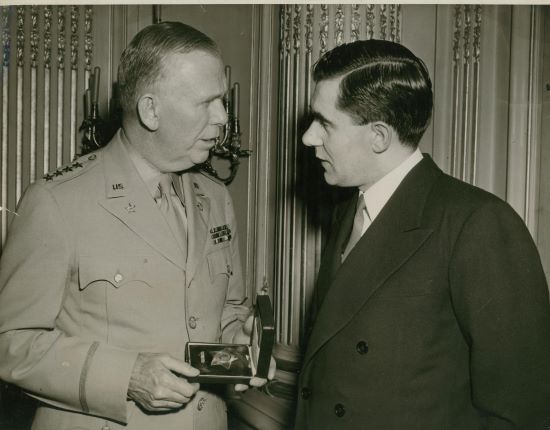
Marshall with Soviet Ambassador to the United States Andrei Gromyko
Marshall had some planned comments, in which he said that he accepted the award “for the American Army, as a symbol of your regard and appreciation of our war effort.” He also alluded to the upcoming invasion of Europe: “The final action in this terrible European war is now focused on a single battle in which every Allied force will be represented. It is to be a battle to the death for the Nazis and a battle to victory for the Allies.”
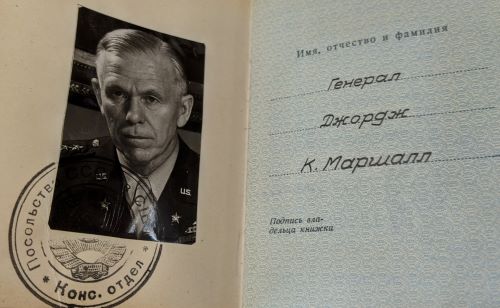
Order of Suvorov citation booklet inscribed to General George C. Marshall
The Order of Suvorov First Class has been bestowed on only a dozen non-Russians. Other recipients include Gen. Dwight D. Eisenhower, Gen. Omar Bradley, and British Field Marshal Alan Brooke.
Notes:
Russian citation courtesy of historian Svetlana Lokhova.
Melissa has been at GCMF since Fall 2019, and previously was an academic librarian specializing in history. She and her husband, John, have three grown children, and live in Rockbridge County with two large rescue dogs. Keep up with her @MelissasLibrary.
